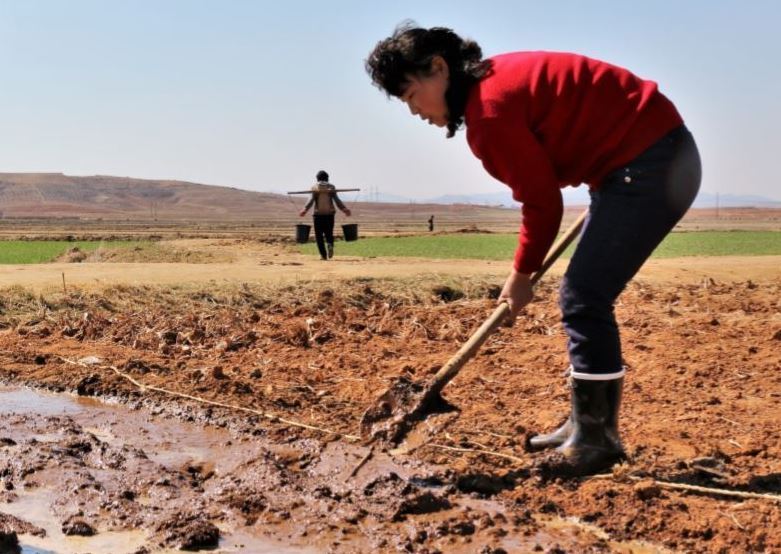Ministry downplays reports on North Korea’s food situation
By Park Han-naPublished : May 15, 2019 - 17:47
Amid the Seoul government’s efforts to send humanitarian aid to the North, the Unification Ministry on Wednesday shrugged off reports that North Korea might not be facing a severe food crisis given that the price of rice in the country is on a downward trend.
The price of rice in the North Korean market, known as jangmadang, had fallen to 4,000 won per kilogram as of April 30, from 5,000 won in November last year, according to a report by Daily NK, which regularly surveys the price.
“We recognize the assessment compiled by the World Food Program and the Food and Agriculture Organization as official and objective indicators,” Unification Ministry spokesperson Lee Sang-min told reporters during a regular press briefing.
The price of rice in the North Korean market, known as jangmadang, had fallen to 4,000 won per kilogram as of April 30, from 5,000 won in November last year, according to a report by Daily NK, which regularly surveys the price.
“We recognize the assessment compiled by the World Food Program and the Food and Agriculture Organization as official and objective indicators,” Unification Ministry spokesperson Lee Sang-min told reporters during a regular press briefing.

The assessment refers to the two UN agencies’ joint report that said the impoverished country is facing its worst harvest in 10 years this year due to prolonged dry spells and abnormally high temperatures, coupled with limited supplies of agricultural inputs.
“Our stance remains unchanged that it is necessary to provide food aid from a humanitarian and compatriots’ perspective,” Lee said.
He argued that there are multiple limitations in estimating North Korea’s food situation in the absence of official prices or those issued by an official organization due to the nature of the country’s regime.
The South Korean government’s plan to provide rice to mitigate the impact of the North’s food shortage started in earnest this week, after a short pause following Pyongyang’s short-range missile launches.
Experts have mixed opinions on the falling rice prices. Some believe tough international sanctions have lowered the purchasing power of North Koreans, resulting in market contraction and a price decline.
An analyst at a state-run bank raised doubts over the severity of food security there.
He said if the North was hit by a serious food shortage, the price of corn should go up as people tend to buy it for their meals because it’s normally 50 percent cheaper than rice. “But prices have been decreasing in recent months,” he said on condition of anonymity.
By Park Han-na (hnpark@heraldcorp.com)







![[Graphic News] More Koreans say they plan long-distance trips this year](http://res.heraldm.com/phpwas/restmb_idxmake.php?idx=644&simg=/content/image/2024/04/17/20240417050828_0.gif&u=)
![[KH Explains] Hyundai's full hybrid edge to pay off amid slow transition to pure EVs](http://res.heraldm.com/phpwas/restmb_idxmake.php?idx=644&simg=/content/image/2024/04/18/20240418050645_0.jpg&u=20240419100350)








![[KH Explains] Hyundai's full hybrid edge to pay off amid slow transition to pure EVs](http://res.heraldm.com/phpwas/restmb_idxmake.php?idx=652&simg=/content/image/2024/04/18/20240418050645_0.jpg&u=20240419100350)

![[Today’s K-pop] Illit drops debut single remix](http://res.heraldm.com/phpwas/restmb_idxmake.php?idx=642&simg=/content/image/2024/04/19/20240419050612_0.jpg&u=)